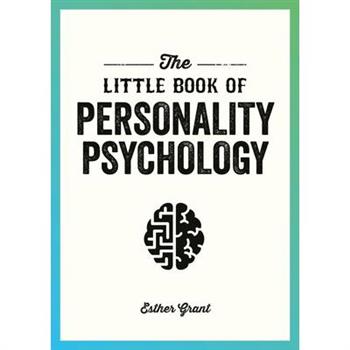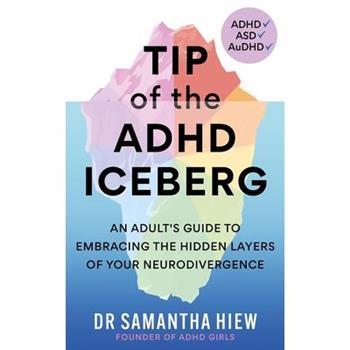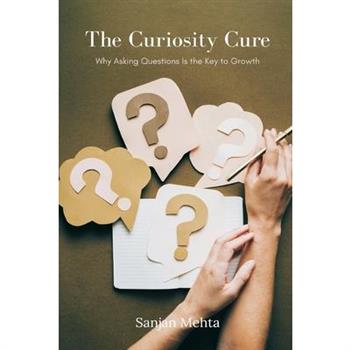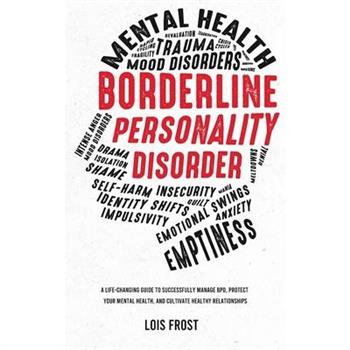Heart Breath Mind
Stress is not in your head, it's in your body--this is the key to peak performance that Leah Lagos, PsyD, BCB, an internationally known expert in biofeedback and sport and performance psychology, wants us to know. In this book, she shares with readers for the first time the same program that she uses with top athletes, CEOs, business leaders--anyone who wants and needs to perform at their best. What makes her scientifically proven 10-week program unlike any other is that she recognizes the link between heart rhythms and stress to create specific, clinically tested exercises and breathing techniques that allow you to control your body's physical response to stress. She pairs this training with cognitive-behavioral exercises to offer a two-tiered process for strengthening health and performance, enabling readers to respond more flexibly to stressful situations, let go of negative thoughts and emotions, and ultimately be more focused and confident under pressure.
When Breath Becomes Air當呼吸化為空氣(國際平裝)
人終將一死,但當死亡迫近時,我們才會開始學習如何好好活著。 *蟬聯亞馬遜書店長銷榜的經典動人之作。 *榮獲紐約時報暢銷書。 *入選普立茲獎決選名單、比爾.蓋茲2017年推薦書單。 「這本小書擁有非常多層次的意義及諸多的對比關係,比如生與死、病人與醫生、兒子與父親、工作與家庭、信仰與理智。 在保羅短暫的一生中,他透過書籍、寫作、醫學、手術、科學等各種方式探尋生命的意義。我非常有幸能閱讀這本書,得以見證這段旅程的一小部分。」――比爾.蓋茲 「患病後,棘手之處在於,你的價值觀不斷在變……你決定要把時間花在當神經外科醫師,可是兩個月後,你不那麼想了。再過兩個月,你也許想去學吹薩克斯風,或想全心服事教會。死亡是個單一事件,可是身罹絕症地活下去,卻是個歷程。」――保羅.卡拉尼提 即將攀上充滿希望的人生巔峰,死亡的陰影卻突然橫亙身前,一位三十七歲的天才神經外科醫師勇敢直視死亡,在所剩時間不多的急迫中,奮力一探生命的最根本價值。 二○一四年,三十六歲的卡拉尼提準備完成十年之久的神經外科醫師訓練,其研究還獲得美國神經外科學會最高研究獎,即將獲得史丹佛醫學院外科教授職位並主持自己的研究室。他的人生正邁向生命的高峰,卻被診斷出患有第四期肺癌。前一天他是醫生,還在治療瀕死的病人,第二天他變成病人,掙扎求生。他跟妻子原先設想的未來,就此完全蒸發。 在確診自己罹患末期疾病後,這位才華洋溢的年輕神經外科醫師從醫師、病人、兒子、伴侶與父親等不同身分,審視自己三十七年的生命歷程,思索生命與死亡的意義。面對未知與隨時可能降臨的人生終點,他寫道: 「我起碼已經了解,醫師的職責不是峻拒死亡,也不是使病人回復舊有生命,而是敞開雙臂,擁抱生命已經分崩離析的病人及家屬,努力幫他們重新站起,去面對、去弄清楚他們本身存在的意義。」 卡拉尼提最後於二○一五年三月過世,留下這本深刻且令人感動的書。《當呼吸化為空氣》飽含文學、醫學與哲學的省思,引領我們思考自己的人生價值與有限的生命。
ADHD Workbook for Women
Do you find it hard to focus on your goals, juggle your responsibilities, and maintain healthy relationships?Are you constantly battling against impulsive decisions, especially when it comes to emotional spending? If so, then this book is for YOU!Here's a little sneak preview of what you'll get: - Discover your strengths for managing schedules and time- Work with your brain to stay motivated- Develop ways to prioritize the change you want- Gain clarity to maintain organizing success with less stress, more peace, and calm- Discover how to shift your organizing mindset- Finish your tasks and achieve your goals- Making better life decisions- Learn how to manage your time- Stop Feeling Overwhelmed- Increase your emotional intelligence- Find your best self by maximizing your strengthsIf you're looking for ADHD specific strategies that are practical, easy to implement and support you to create lasting change, this workbook is for you.This Workbook provides easy to implement strategies to support women of all ages to extinguish the fire of challenging ADHD symptoms to gain control of your life.There is nothing better than evolving into the best version of yourself and growing alongside the people that matter most to you.
Managing Negative Emotions
Still struggling with anxiety, stress, anger and other negative emotions even though you've tried everything to manage them?Are you feeling stuck in a negative emotional pattern, and want to learn how to identify and change it for the better?Do you want to learn how to express your emotions in a healthy way?Are negative thoughts and limiting beliefs holding you back from achieving your goals, and do you want to learn how to reframe them into positive ones?I see you. I've been where you are. Too much uncontrolled negative feelings leaves us frustrated, irritable and exhausted.Ready to STOP the endless cycle of negative emotions? It's a simple matter of reframing your negative thoughts. This is where my experience comes in! May I help you?Here's a little sneak preview of what you'll get: - Relieve your painful emotions, and bring back serenity and calmness into your life.- Strategies to identify and understand your emotional triggers.- Techniques to release negative emotions and replace them with positive ones.- Effective ways to manage stress and anxiety.- Mindfulness practices for emotional balance and self-awareness.- Communication tips for expressing your emotions in a healthy way.- How to cultivate emotional intelligence and empathy.- Techniques for healing past emotional wounds and traumas.Ready to take control of your negative emotions and start living your best life?
The Pause Advantage
When you rush, you pay twice-first in mistakes, then in repairs. This book shows how a deliberate pause can cut the error rate, widen your options, and restore judgment when the stakes are high. It is a clear, practical guide for people who make choices that matter and want fewer regrets. You will learn a compact protocol for mindful decision-making you can use in minutes, not months. It explains when to pause before acting, how to spot cognitive bias, and how to choose with mental clarity rather than mood or momentum. If you lead teams, work in complex systems, or simply want better choices at work, the pages here replace guesswork with a rhythm you can trust. - Identify reversible versus irreversible calls so you can deploy strategic patience where it counts - Build an "if-then" pause rule that helps you avoid impulsive decisions under fire - Use simple tools to gain emotional mastery and keep your head when others lose theirs - Apply calm, disciplined pacing to decision-making under pressure without losing speed where it matters Written for thoughtful readers who value rigour over hype, this is not about slogans-it is about changing how you decide tomorrow morning. The ideas are field-tested, the practices are brief, and the benefits are cumulative. Slow your seeing for a moment, and your actions will get sharper all day.
The Loneliness Epidemic
We live in the most connected age in history, yet millions of people feel more isolated than ever. Notifications replace conversations, friendships fade under the weight of busy schedules, and communities that once anchored us have dissolved into digital noise. The result is a silent but growing loneliness epidemic-a crisis that affects our health, our relationships, and even the stability of our societies. This book offers a new way forward: treating human relationships not as optional extras, but as essential infrastructure for a meaningful life. Drawing on psychology, sociology, history, and cultural traditions, it reveals how ancient friendship rituals, shared community design, and conscious digital detox practices can rebuild the connections we crave. From the neuroscience of belonging to lessons from cultures that have preserved third places and communal bonds, readers are guided to see connection as something that must be intentionally designed and sustained. Along the way, compelling stories and research highlight how the attention economy and relationships intersect-why constant scrolling leaves us more disconnected, and how reclaiming our focus creates space for real intimacy. Practical exercises invite readers to map their own "connection ecology," experiment with digital boundaries, and design daily habits that nurture closeness. This is not about abandoning technology or chasing shallow fixes. It is about reimagining how we live, work, and gather-so that authentic human connection becomes the measure of a life well-lived. Whether you are seeking to rebuild human connection, strengthen friendships, or design richer communities, this guide shows how to move from a life of isolation to one rooted in trust, belonging, and shared humanity. By the final page, you will carry a practical framework for weaving relationships back into the fabric of everyday life-proving that loneliness is not destiny, but a challenge we have the power to overcome.
The Curiosity Cure
Curiosity is not entertainment-it is a discipline that changes how you notice, decide, and create. If you have ever felt flooded with information yet starved of insight, this book offers a sharper way to think and act. Through field-tested tools, compact stories, and a set of daily practices, it turns vague intention into concrete inquiry so you can move from noise to signal in work and life. Along the way, it restores the pleasure of learning without the pressure to perform. - Learn curiosity as a repeatable habit, not a personality trait - Practise the Socratic method for everyday life to dissolve stuck problems - Build durable problem-solving skills with falsifiable tests and cheap experiments - Use creative thinking exercises that produce ideas on schedule, not by accident - Apply cognitive psychology for personal growth to calibrate confidence and cut bias - Install habits of inquiry that improve meetings, decisions, and relationships Strengthen critical thinking for adults with clear frameworks and humane language By the end, you will keep a personal bank of questions that change your life and a small set of rules that help you learn to think clearly when it matters most. This is an accessible, rigorous guide for thoughtful readers, makers, managers, teachers, and parents who want less performative certainty and more grounded progress-one well-aimed question at a time.
Ageless Thinking
What if the secret to living well past 90-or even reaching a 100-year life-was not hidden in a pill, diet, or exercise routine, but in the way you think? Modern science shows that the brain is far more adaptable than we once believed. Through the power of neuroplasticity, we can rewire our minds, cultivate resilience, and continue to learn, create, and grow at every stage of life. This book reveals how adopting an ageless thinking approach can transform the experience of aging from a slow decline into a sustained ascent. Drawing on cutting-edge cognitive longevity research, timeless philosophy, and stories of people who reinvented themselves late in life, it shows that the real key to vitality lies in training the mind as deliberately as we train the body. Readers will discover: - How to build mental fitness habits that strengthen memory, creativity, and focus well into later years - Why adaptability-not rigid routine-is the true predictor of lasting vitality - The role of purpose and aging well, and how small daily rituals create enduring fulfillment - Practical tools for future readiness, from 10-year thinking to designing a life that thrives beyond retirement This is not about denying age-it is about rejecting the false choice between youth and decline. By cultivating a longevity mindset, readers will walk away with a practical framework to expand their potential, design a meaningful path through every decade, and remain fully alive, engaged, and evolving for a lifetime. For professionals, lifelong learners, and anyone who wants to thrive in the era of extended lives, this is both a guide and a call to action: to embrace ageless thinking and create a future as vibrant as you dare to imagine.
The Vegan Revolution
This book is The Art of War for the age of Guerrilla Compassion. The book contains an exact blueprint for all the solutions to all of the problems facing the Vegan community worldwide."Victorious warriors win first and then go to war, while defeated warriors go to war first and then seek to win." - Sun TzuMost vegans go to war first - shocked by the ridicule, the bacon memes, the family dinner ambushes - and only later try to figure out what hit them. This book makes sure you win first."If you know the enemy and know yourself, you need not fear the result of a hundred battles." - Sun TzuHere you will walk deep behind carnivore lines and learn every hidden mechanism: the fragile masculinity, the cognitive dissonance, the tribal signalling, the herd instincts disguised as "personal choice." You will see every attack coming ten moves ahead and smile graciously knowing your opponents can't land a punch.."The supreme art of war is to subdue the enemy without fighting." - Sun TzuThat is exactly what Guerrilla Compassion does. No shouting. No moral superiority. Just calm, surgical "compassionate assassination" - until the only possible outcome is surrender to non-violence.
Healing the Inner Noise
What if the voice in your head-the one that replays mistakes, fuels anxiety, and keeps you awake at night-wasn't an enemy to silence, but a signal you could understand, reshape, and even harness? In a world of constant notifications, comparison, and pressure to perform, many of us live with a relentless soundtrack of overthinking. The result is familiar: exhaustion, stress, scattered focus, and a persistent sense that our best efforts are never enough. This book offers a different path. Instead of fighting your thoughts or trying to force them away, it shows you how to transform mental chatter into clarity and strength. Drawing on insights from psychology, neuroscience, and mindfulness traditions, it reveals why the mind is wired to overanalyze-and how to retrain it with proven CBT tools, mindfulness practices, and practical metacognition exercises. Through vivid stories, science-backed frameworks, and step-by-step techniques, you will learn how to: - Recognize when healthy reflection turns into unhelpful rumination - Quiet the storm of mental chatter without suppressing your thoughts - Build daily habits that strengthen attention training and inner calm - Use emotions as data to guide better decisions and deepen resilience - Discover the surprising value of silence and simple practices for stress management By the final chapter, you won't just know how to stop overthinking-you'll know how to redirect your mind's restless energy toward focus, creativity, and presence. This is not about empty mantras or quick fixes; it is a practical, evidence-informed guide to reclaiming peace in a noisy world. If you've ever wished you could turn down the volume in your head, this book offers the tools and perspective to do exactly that-so you can finally experience the freedom of a quieter, clearer mind.
The Last Time I Apologize for Being Too Much
You were never "too much."You were just giving too much to people who gave you nothing back.The Last Time I Apologize for Being Too Much is a brutal wake-up call for anyone who loved deeply, showed up consistently, and still got blamed when things fell apart.This book is for the ones who: - Over-explained their feelings- Stayed loyal to emotionally unavailable people- Confused patience with self-betrayal- Accepted breadcrumbs and called it loveInside, you'll learn: - Why emotionally immature people punish emotional intelligence- How manipulation hides behind charm, confusion, and mixed signals- Why consistency matters more than chemistry- How "understanding" became the reason you kept losing yourself- Why closure doesn't come from them - it comes from choosing yourselfThis isn't a healing guide that tells you to stay soft for people who keep hurting you.It's a line in the sand.No chasing.No explaining.No shrinking.Just clarity, boundaries, and self-respect.If you're done: - Loving harder than you're loved- Carrying relationships by yourself- Apologizing for your standardsThis book isn't here to comfort you.It's here to wake you up.
Borderline Personality Disorder
Are you constantly grappling with intense emotional turmoil?Does the fear of abandonment often consume your thoughts, causing you to push away those you love the most?Do you struggle to understand why your mood can shift so rapidly from euphoria to deep despair?Does the storm of rage inside you often lead to impulsive and self-damaging actions?Do you often find yourself questioning your self-worth, constantly battling an inner critic?I understand the whirlwind of emotions and the constant struggle. I've been there.It's hard, it's confusing, it's often lonely, but remember, you are not alone. Your battle with BPD is not in vain. This book is your beacon of hope.Here's a little sneak preview of what you'll get: - Practical strategies to manage emotional instability and cultivate emotional intelligence.- Insights into the origins and symptoms of BPD, helping you better understand your condition.- Effective coping mechanisms to handle stress and paranoia, fostering a sense of peace and tranquility.- Techniques to help you develop a healthier and more positive self-image.- Methods to regulate anger and express your emotions effectively.- Proven strategies to manage fear of abandonment and nurture healthier relationships.- Steps to control impulsivity and channel it productively.- Real-life stories and examples to guide you in your journey towards managing BPD.Just a few clicks stand between you and the beginning of a transformative journey.Are you ready to step out of the shadows of Borderline Personality Disorder and embrace a life of emotional balance, self-love, and healthier relationships? This book is more than just pages of text; it's a roadmap to reclaiming control over your life.Make the first move towards a better tomorrow. Your healthier, happier self awaits.
Sexual Confidence Among Black Women
Sexual self-esteem and sexual assertiveness are two constructs that tend to be beneficial for women's sexual satisfaction and sexual health. While these concepts are associated with positive consequences that concern women's sexual self-perception, there are other concepts that may lead to negative consequences. Self-objectification and self-sexualization are constructs that may have positive and negative outcomes for women's sexual relationships. Little research has explored how race impacts these relationships; based on the existent stereotypes of Black women, there is reason to believe that Black women may have more challenges in terms of sexual self-esteem and self-assertiveness.
Childhood Abuse Impact on Sexuality
Emotional fluctuations in at-risk children are then shaped by invalidating caregiving environments through repeated exchanges and operant learning. Invalidating environments can include the rejection or oversimplification of emotions by family members, leading to misunderstood/poorly communicated emotions, and subsequent reinforcement of extreme emotional reactions. Over time, emotionally invalidating environments and poor communication between children and caregivers lead to further emotional fluctuations-now emotionaldysregulation-and thus, irregulated behavior. Maladaptive behaviors (e.g., selfinjury) emerge during adolescence, and pose a significant risk for developing BPD. These learned behaviors function as emotional regulation/avoidance strategies but also exacerbate the risk for BPD by disrupting healthy emotional growth in relationships, leading to interpersonal dysfunction.
Karangarua
Karangarua - someone related through two different lines; standing in a double relationship.This book comprises peer-reviewed papers from the international transactional analysis conference held in Whanganui-a-Tara Wellington, Aotearoa New Zealand in November 2024, which took as its theme, karangarua: unity through diversity in relationships. Each paper in the book offers a unique response to the karanga or call across professional, cultural, spiritual, and personal realms, which invites the reader into deeper relationship with themselves, with others, and with the evolving field of transactional analysis. The book will be of interest to transactional analysts in all its fields (i.e., counselling, education, organisations, and psychotherapy), as well as those professionals and members of the public interested in knowing more about transactional analysts. It will also be of interest to professionals and citizens interested in cross-cultural engagement, and, specifically, bicultural engagement in Aotearoa New Zealand.
The Complex PTSD Workbook
Do you ever react with panic, shutdown, or self-criticism and have no idea why?Do you feel like your body is still bracing for something that happened years ago?Do you keep "functioning" on the outside while feeling overwhelmed on the inside?If these patterns feel familiar, you're not imagining them, your nervous system is still working in survival mode.According to the CDC-Kaiser Permanente ACE Study, nearly two-thirds of adults report at least one adverse childhood experience.Hypervigilance, emotional flashbacks, freeze responses, and self-criticism are not personality flaws, they're survival patterns your body never had a chance to update.Inside: Understand the 4 mechanisms through which childhood trauma reshapes your brainDecode your body's signals using a simple, judgment-free mapping methodIdentify your top 3 emotional flashback patterns before they take overApply a 13-step protocol that short-circuits a flashback in real timeBuild a compact first-aid kit for panic, dissociation, and overwhelmDismantle the inner critic using targeted counter-scriptsSpot the exact moment where self-reflection turns into shameRelease stored shame with practical somatic cuesReduce hypervigilance by training your social tolerance windowInterrupt constant scanning with micro-interventions you can use anywhereShift out of freeze using 3 movement-based reset techniquesRecognize dissociation early with fast, reliable indicatorsGround yourself in seconds with no-nonsense sensory anchorsAccess healthy anger and convert it into clean, firm boundariesPractice trauma-safe self-compassion through 3 daily pillarsUnderstand your attachment style to reduce relationship reactivityCommunicate needs with low-conflict scripts that prevent escalationSet boundaries without guilt using simple, enforceable stepsProtect your energy with clear limits that don't provoke backlashIf you want your daily life to stop feeling like a constant fight with your own body, this is where the shift begins.
5 Greatest Moments
Discover the extraordinary in the everyday.Five Greatest Moments invites you to pause, reflect, and uncover the powerful moments hiding in plain sight. Blending presence with gratitude, this simple yet transformative method helps you reconnect with what truly matters-one moment at a time. Whether you're navigating change, seeking clarity, or simply trying to stay grounded in a chaotic world, this gentle guide will meet you where you are and walk with you toward a more meaningful life.
Humanos
HUMANOS is a landmark exploration of emotional evolution and the inner architecture of human experience. Written with clarity, depth, and literary precision, the book guides readers through the seven fundamental movements of the human emotional spiral, a dynamic model that reveals how individuals grow, adapt, and transform across the course of life.Drawing from integrative psychology, human development, and contemporary understandings of consciousness, the author presents a compelling framework that reconnects the individual with their internal intelligence. Each chapter illuminates a stage of the emotional spiral with practical insights, reflective prompts, and accessible scientific reasoning, allowing readers to understand themselves with renewed coherence and direction.Far from offering formulas or rigid doctrines, HUMANOS invites the reader into an elegant process of self-observation and inner refinement. It shows how emotional maturity emerges through movement, contrast, and integration, and how this process defines the evolution of human potential.Written for readers seeking clarity, authenticity, and personal evolution, HUMANOS combines intellectual rigor with narrative fluency, making it suitable both for general audiences and for professionals in psychology, integrative health, coaching, and human development. This is a book designed to accompany individuals at any stage of their inner journey, offering a profound yet practical roadmap toward emotional coherence and purposeful living.HUMANOS stands as a modern reference on emotional development and an inspiring contribution to the international conversation about human consciousness and growth.
The Ailing Science
"The Ailing Science" is an interdisciplinary exploration of the human being through biology, psychology, anthropology, social structures and history. It argues that much of the science used to understand the human mind is incomplete or fundamentally flawed. Most modern psychological theories were created in limited European environments and later treated as universal truths. This book challenges that intellectual heritage and proposes a new, global perspective on the human mind.Drawing on biochemistry, hormone dynamics, neurology and human physiology, the book shows how our thoughts, emotions and identity arise from the body interacting with culture, food, environment and political power. It explores how historical civilizations, including ancient Egypt, already understood the mechanisms of social control, and how similar patterns of influence, manipulation and governance continue in modern societies - transformed in appearance, but structurally unchanged."The Ailing Science" investigates the deep continuity between biology, culture and political systems. It reveals how the mind cannot be separated from the body, how science has often ignored global human diversity, and how modern democratic structures still reflect ancient methods of shaping behavior.This book is a manifesto for a renewed understanding of humanity - scientific, historical, cultural and political. It invites readers to question inherited models, to see the forces that shape society, and to rethink what it means to be human in a world built on both knowledge and illusion."
Essence of Our Humanity
In the early 1980s, Nancy Johnson served as a nurse in a Louisiana psychiatric hospital where she grew to care deeply for her patients. The experience deepened her faith, and taught her valuable lessons about life, the fragility and resilience of the human spirit, and the healing power of a forest path. In this small book with a big heart, you'll meet Nancy's patients and, maybe even, come to love them, too.
Hi Mom, It's Me
What if grief isn't an ending, but the beginning of a different kind of connection?In Hi Mom, It's Me, Nancy Yuskaitis shares the soul-stirring true story of a mother's unimaginable heartbreak-losing both daughters, decades apart-and the mystical bridge that kept their love alive. Through powerful afterlife communications known as Soulful Starlight Sessions, Nancy receives messages that not only ease her pain but also open her heart to profound healing, spiritual awakening, and renewed purpose.This is not just a memoir of loss. It's a luminous invitation to view grief through a new lens-one that sees beyond the veil and into the enduring bond between souls. Guided by her daughters from beyond, Nancy discovers how love transcends space and time, and how four simple words-Hi Mom, It's Me-can change everything.If you've ever wondered whether your loved ones are still with you or if you've felt the whisper of something greater, this book may just be the sign you've been waiting for.
Miss Con
In the heart of 19th century England, where the rigid structures of social class dictate every move, a young woman stands at the crossroads of personal growth and societal expectation. Her journey through the intricate web of Victorian fiction reveals the universal struggle between family dynamics and individual aspiration. This historical novel, once lost to time, has been out of print for decades and is now republished by Alpha Editions, breathing new life into its pages for today's and future generations. As you turn each page, the echoes of Charlotte Bronte and George Eliot resonate, inviting both young adult readers and classic literature enthusiasts to explore its depths. The Victorian era setting, rich with the nuances of British literature, serves as a backdrop for a story that transcends time, offering insights into the human condition that remain relevant today. This edition is not just a reprint-it's a collector's item and a cultural treasure, meticulously restored to preserve its historical significance while making it accessible to modern readers. As you delve into this narrative, you'll find yourself captivated by the delicate balance of social class and personal ambition, a theme as poignant now as it was then. Embrace this rare opportunity to own a piece of literary history, reimagined for a new era.
A Lady And Her Husband
In the heart of early 1900s London, amidst the bustling streets and whispered societal constraints, emerges a tale of introspection and defiance. This social commentary novel, set against the backdrop of Edwardian England, invites readers into the intricate world of marriage and relationships, where women's societal roles are both questioned and redefined. As the suffragette movement gains momentum, the narrative delves deep into family dynamics exploration, portraying the delicate dance between personal desires and societal expectations. This British literature classic, once out of print for decades, has been lovingly republished by Alpha Editions. It has been restored for today's and future generations, ensuring that its timeless themes resonate anew. The story captures the essence of an era, offering both casual readers and historical fiction enthusiasts a vivid glimpse into the challenges and triumphs of the time. As a part of Amber Reeves' works, it stands as a testament to her insightful exploration of the human condition and the societal norms that shape it. This edition is not just a reprint - it's a collector's item and a cultural treasure, inviting readers to reflect on the enduring relevance of its themes. Whether you're a reader of classic literature or simply intrigued by the suffragette movement context, this novel promises a journey through the complexities of early 20th-century fiction, leaving an indelible mark on your literary collection.
El Deseo
In the shadowy corridors of early 1900s Germany, where societal norms held a firm grip, a tale unfolds that delves deep into the labyrinth of human desires and conflicts. This classic German novella, long out of print and now beautifully republished by Alpha Editions, invites readers to explore a world where the veneer of propriety masks a simmering undercurrent of unspoken yearnings. With echoes of Thomas Mann's influences and Gustav Freytag comparisons, this narrative intricately critiques societal norms and offers a psychological exploration that resonates with today's readers as much as it did with those of its own era. Restored for today's and future generations, this edition is not just a reprint-it's a collector's item and a cultural treasure, offering a window into the realist German literature that shaped early 20th century fiction. The novella's profound insights into the human condition make it a must-read for literary scholars and students, while its vivid portrayal of a pre-World War era captivates historical fiction enthusiasts. As the characters navigate their internal struggles and societal expectations, readers are compelled to reflect on the timeless nature of these themes. This newly restored edition stands as a testament to the enduring power of storytelling, inviting both casual readers and classic-collection buyers to rediscover a lost gem of literary history.
The Cheats
In the shadowed corridors of Victorian England, where the line between reality and the supernatural blurs, a tale of love and betrayal unfolds with haunting elegance. Amidst the gothic fantasy literature of the early 20th century, this romantic fantasy novel weaves a tapestry of magical realism elements and supernatural intrigue that captivates both heart and mind. Set against a backdrop reminiscent of the works of Daphne du Maurier and Mary Stewart, it invites readers into a world where passion and mystery dance in equal measure. This book, once lost to the ravages of time, was out of print for decades and is now republished by Alpha Editions. Its restoration for today's and future generations ensures that this historical romance fiction remains a vibrant part of literary history. As a collector's item and a cultural treasure, this edition is not just a reprint but a testament to the enduring allure of stories that transcend time. Fans of Marjorie Bowen and readers of romantic fantasy will find themselves enchanted by the novel's intricate narrative and richly drawn characters. The Victorian England backdrop serves not only as a setting but as a character in its own right, breathing life into a story that resonates with the timeless themes of love and betrayal. This is more than a book; it is an experience, a journey into the depths of human emotion and the enigmatic allure of the past.
La Malquerida
In the heart of the rural Spanish countryside, where whispers of the past echo through the fields, a gripping tale of family conflict unfolds. This early 20th-century drama, steeped in psychological elements, delves into the intricate dynamics of love, betrayal, and the haunting shadows of unspoken truths. As tensions rise, the drama in three acts captures the raw essence of human emotion, resonating with the timeless influence of Federico Garcia Lorca and the profound depth of Spanish Golden Age theatre. This Spanish theatre play, once lost to the sands of time, emerges anew, restored for today's and future generations. Out of print for decades, it has been lovingly republished by Alpha Editions, ensuring that its cultural significance is preserved. This edition is not just a reprint - it's a collector's item and a cultural treasure, offering a window into the soul of early 1900s Spain. The rural Spanish setting serves as a backdrop for a narrative that enthrals both casual readers and those with a deep appreciation for Spanish literature. Whether you're a theatre student, a scholar, or simply an enthusiast of the dramatic arts, this play invites you to explore the complexities of the human psyche. Its relevance endures, offering insights into the universal themes of love and loss, making it a must-have for any classic collection.
El Caso Extra簽o Del Doctor Jekyll
In the shadowy streets of Victorian London, where the gaslights flicker and the fog swirls with secrets, a chilling paradox unfolds-a tale of dual identity that haunts the very essence of humanity. This gothic novella plunges readers into a mystery thriller where the line between good and evil blurs, and the transformation theme resonates with timeless intrigue. Once out of print for decades, this gripping narrative has been lovingly republished by Alpha Editions, restored for today's and future generations, offering a fresh opportunity to delve into its depths. Set against the backdrop of 19th century England, the story's exploration of moral ambiguity and inner conflict remains as relevant now as when it first captivated audiences. It stands alongside Mary Shelley's Frankenstein and Bram Stoker's Dracula as a cornerstone of horror fiction, inviting classic literature fans and curious minds alike to ponder the complexities of human nature. This edition is not just a reprint-it's a collector's item and a cultural treasure, a testament to the enduring power of storytelling. Whether you're a casual reader seeking a spine-tingling escape or an academic eager for study, this restored masterpiece promises a journey through the shadowy corridors of the human psyche, where every turn reveals a new facet of its enigmatic protagonist.
Paternidad
In the heart of 19th century France, where the bucolic charm of the countryside masks the complexities of human emotion, a profound exploration of fatherhood unfolds. This poignant narrative, once lost to time, has been lovingly restored for today's and future generations. It captures the essence of family relationships amidst the rustic beauty and quiet struggles of rural life. As you journey through the pages, you'll find yourself immersed in a world where the bonds between fathers and their children are tested and redefined, a theme that resonates as deeply now as it did then. This edition is not just a reprint-it's a collector's item and a cultural treasure, offering a rare glimpse into the intricacies of 19th century French literature. Classic literature enthusiasts and historical fiction readers alike will appreciate the nuanced portrayal of life in the French countryside, a setting that serves as both a backdrop and a character in its own right. For admirers of Andr矇 Theuriet's works and those who find kinship with Emile Zola readers, this novel offers a rich tapestry of literary fiction that speaks to the timeless nature of human connection. Having been out of print for decades, this book is now republished by Alpha Editions, ensuring that its legacy endures. Whether you're a casual reader or a discerning collector, this restored masterpiece invites you to experience the enduring power of storytelling from a bygone era.
The Crime Of Laura Sarelle
In the shadowy corridors of a Victorian mansion, where whispers of family secrets linger like ghosts, a chilling crime unfolds that will haunt the living and the dead. Set against the atmospheric backdrop of 19th century England, this Victorian gothic novel weaves a tapestry of psychological drama and moral dilemmas, inviting readers into a world where every choice echoes through time. As the plot thickens, the intricate layers of historical fiction reveal a web of deceit and passion that captivates both casual readers and classic literature enthusiasts alike. Rediscovered after decades out of print, this crime mystery book has been lovingly restored by Alpha Editions for today's and future generations. Its revival is not merely a reprint; it stands as a collector's item and a cultural treasure, offering a glimpse into the literary prowess that once captivated the minds of gothic literature fans during the Victorian era. With echoes of masters like Bram Stoker and Wilkie Collins, this tale of intrigue and suspense resonates with the timeless allure of classic storytelling. For those who revel in the enigmatic charm of family secrets and the haunting beauty of a Victorian era setting, this novel promises an unforgettable journey. Its return to the literary world is a testament to its enduring significance, bridging the past and present with a narrative that continues to intrigue and inspire.
S穩 S矇 Por Qu矇
In the heart of early 1900s Spain, where the echoes of tradition meet the whispers of modernity, a tapestry of human relationships unfolds, revealing the intricate dance between duty and desire. This psychological fiction, long out of print and now lovingly republished by Alpha Editions, explores the existential themes and moral dilemmas that resonate as deeply today as they did a century ago. As you delve into the rich layers of this early 20th century novel, you are transported to a European setting where the characters grapple with their innermost conflicts, inviting readers to reflect on their own lives. This edition is not just a reprint - it's a collector's item and a cultural treasure, restored for today's and future generations. Its pages are steeped in the intellectual fervour akin to the works of Miguel de Unamuno and P穩o Baroja, offering a profound exploration of the human condition that will captivate literary enthusiasts and Spanish-speaking readers alike. The narrative's timeless relevance and historical significance make it a must-have for any classic collection, bridging the past with the present in a seamless narrative that speaks to the universal quest for meaning. Rediscover this hidden gem, a testament to the enduring power of Spanish literature, now available for those who cherish the art of storytelling.
Holding The Line
In the chaos of war, where the boundaries between heroism and futility blur, emerges a tale of profound personal sacrifice and unyielding resolve. Set against the grim backdrop of the European theatre during the early 20th century, this realistic fiction novel delves into the intricate tapestry of military strategy and human endurance. As echoes of trench warfare and the relentless grind of conflict resonate through its pages, readers are drawn into a world reminiscent of the poignant narratives found in works like All Quiet on the Western Front and the evocative prose of Ernest Hemingway. This book, a forgotten gem of war literature, was out of print for decades and is now lovingly republished by Alpha Editions. It offers a vivid exploration of the human condition amidst the relentless tides of history, making it a significant addition to the canon of historical fiction. Restored for today's and future generations, it serves as both a gripping narrative for adult readers and a rich resource for history enthusiasts. This edition is not just a reprint-it's a collector's item and a cultural treasure, preserving the voices and stories that shaped a pivotal era. Immerse yourself in a narrative where the past is not just remembered but profoundly felt, offering insights into the enduring spirit of those who held the line.
The Fear Of Living
In the shadowy corridors of the human psyche, where the fear of life itself can be more daunting than the fear of death, emerges a narrative that deftly explores the existential themes of human existence. This psychological fiction, set against the tranquil yet introspective backdrop of the French countryside, invites readers into a world where personal growth is both a challenge and a necessity. As a classic novel of early 20th century French literature, it intricately examines the complexities of living with authenticity amidst societal expectations. Out of print for decades, this profound work has been lovingly republished by Alpha Editions, ensuring its restoration for today's and future generations. This edition is not merely a reprint; it stands as a collector's item and a cultural treasure, offering literary enthusiasts and book clubs alike an opportunity to delve into the rich tapestry of human emotions and philosophical inquiry. With subtle nods to the introspective style reminiscent of Marcel Proust, it holds a mirror to the fears and desires that drive us. For those drawn to the timeless allure of Henry Bordeaux books, this narrative offers both a reflection and a revelation. Its return to the literary world underscores its enduring significance, inviting readers to ponder the paradox of fearing life while yearning to truly live.
Big Brother And Other Stories
In the shadowy depths of the early 1900s America, where the wilderness settings serve as both sanctuary and adversary, tales of adventure fiction unfold, revealing the intricate dance of human nature exploration. This collection, once lost to time and now revived by Alpha Editions, offers a window into the moral dilemmas that have captivated literary enthusiasts for generations. Each story is a vivid tapestry woven with the influences of Jack London and the whimsical, twist-laden style of O. Henry, capturing the spirit of an era where every choice echoes with historical significance. This book was out of print for decades and is now republished by Alpha Editions, ensuring that its timeless narratives are restored for today's and future generations. As a collector's item and a cultural treasure, this edition transcends mere reprint status, inviting both casual readers and connoisseurs of classic short stories to rediscover the rich textures of American literature. The characters, caught in the throes of their own existential quests, speak to the heart of what it means to be human, their struggles and triumphs resonating with the universal quest for meaning. For historical fiction readers, this collection is a testament to the enduring power of storytelling, capturing the essence of a bygone era while offering insights that remain profoundly relevant. Immerse yourself in these tales and experience the enduring allure of narratives that continue to shape our understanding of the world.
Love In Chief
In the heart of a bustling city where love is both a refuge and a battlefield, a tale unfolds that captures the essence of modern romance. This romantic fiction novel invites readers into a world of intricate relationship dynamics, where every emotional journey is as unpredictable as it is transformative. Set against a vibrant urban backdrop, it explores the delicate dance between personal growth and the longing for connection, resonating deeply with romance enthusiasts and adult readers alike. Rediscovered after decades of obscurity, this contemporary romance book has been lovingly restored for today's and future generations. It's more than just a love story narrative; it's a cultural treasure that speaks to the timeless quest for love and understanding in a rapidly changing world. Fans of Nicholas Sparks and Jojo Moyes will find echoes of their favourite themes, yet with a freshness that speaks to the complexities of modern relationships. This edition, republished by Alpha Editions, is not merely a reprint but a collector's item, offering a unique blend of nostalgia and newness. As a piece of literary significance, it bridges the gap between classic romantic storytelling and the nuanced realities of contemporary life. Dive into this evocative urban romance and let it transport you to a place where love is both chief and challenge, a testament to its enduring power and allure.
The Mating Impulse
In the shadowy corridors of human desire and societal expectation, a speculative fiction masterpiece awaits rediscovery. This science fiction novel, long out of print and now republished by Alpha Editions, explores the intricate dance of human relationships against the backdrop of an early 20th century American setting. As characters navigate the complexities of love and societal norms, readers are invited into a world where psychological exploration meets the imaginative flair reminiscent of Edgar Rice Burroughs and H.G. Wells. The narrative's timeless themes resonate with mature readers, offering fertile ground for book club discussions. Its vivid portrayal of the human condition and the societal constructs that bind us speaks to both casual readers and collectors of classic literature. This edition, meticulously restored for today's and future generations, is not just a reprint-it's a collector's item and a cultural treasure, capturing the essence of an era that continues to echo in our modern lives. Immerse yourself in a story that challenges perceptions and invites introspection, a testament to the enduring power of speculative fiction. This newly available work stands as a beacon of literary and historical significance, a testament to the enduring allure of classic tales that continue to shape our understanding of the world.
CBT for Dummies
Easily understand how to apply the principles of cognitive behavioral therapy (CBT) to your own life CBT For Dummies is the gold standard guide to the gold standard form of psychotherapy. This proven treatment helps with common emotional problems like anxiety, depression, panic, and social anxiety. It's also the evidence-based treatment of choice for common mental health problems like PTSD, body dysmorphic disorder, OCD and beyond. CBT can also help you develop healthier habits, manage your social media use, and improve your life in all sorts of other ways. With this book, you get a comprehensive look at practicing CBT on your own or using CBT with your care providers. Work through exercises to identify thinking patterns that are getting in your way, then learn practical techniques for changing them. In classic Dummies fashion, CBT For Dummies offers easy-to-follow guidance and information anyone can understand. Learn about cognitive behavioral therapy and the science behind it Overcome anxiety and depression, boost self-esteem, manage emotions, or simply improve personal productivity and happiness Break free from your behavioral challenges to achieve your goals Begin to heal from trauma and achieve a healthier outlook on life This is a great Dummies guide for anyone who's interested in the many benefits CBT can have--in therapy session or on your own.
The Passionate Pitchman
In the bustling heart of an urban setting, where ambition and human relationships intertwine like the city's cobbled streets, lies a tale that has been resurrected from the shadows of time. This fiction novel, once lost to the ages, is now republished by Alpha Editions, restored for today's and future generations. Set against the backdrop of the mid-20th century, it captures the essence of a world on the brink of modernity, where salesmanship and persuasion are not just skills but a way of life. This character-driven story delves into the psyche of those who dare to dream beyond the confines of their reality, exploring personal ambition with a depth that resonates with contemporary literature enthusiasts. As a modern classic novel, it offers a rich tapestry of themes that invite fiction readers to ponder, discuss, and debate, making it a perfect choice for book club discussions. The narrative's vivid portrayal of human relationships and the complexities therein elevates it beyond mere storytelling, transforming it into a cultural treasure. This edition is not just a reprint-it's a collector's item that stands as a testament to the enduring power of storytelling. Rediscover the magic of a tale that was out of print for decades, now given new life and relevance in a world still captivated by the art of persuasion and the timeless dance of human desires.




















































